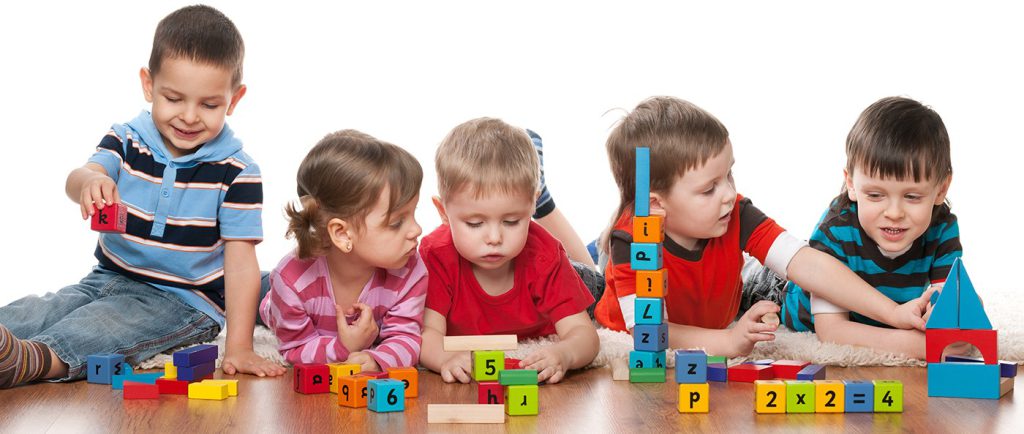Choosing the Right Preschool for Your Child

Choosing a preschool can seem like an intimidating and overwhelming process. Of course you want to set your child up to succeed, and you want his preschool experience to be the foundation for a successful academic career, but with so many choices out there it can be hard to know where to start.
The best way to begin is to carefully consider what you want from a preschool program, and what style of education you believe to be best for your child. Here are a few areas to consider when making your decision:
When To Begin:
A good rule of thumb: start researching and visiting schools the September before you expect your child to attend (typically when he’s 2 years old). Schools commonly begin accepting application in January, and may offer open houses even earlier, but the dates vary with each school. Remember: some schools require their new students to be at least 3 years old, and may require them to be fully potty trained as well. Check with the schools beforehand to make sure you know all the relevant requirements.
What Do You Consider Important in a Preschool Program?
Some preschools offer programs which are more academic, others offer programs which are more social. Different schools will have different approaches to teaching and discipline, which you’ll want to research before making any decisions. Think about your child’s personality and learning style. Does he thrive around others? Is she eager to learn and read? Make your choice based on what’s best for your child’s unique needs and preferences.
What Are Your Options?
Most communities have a wealth of preschools available, and you may need to sift through a number of them before finding the most appealing options. Ask any friends, neighbors, or family members who have kids and have already gone through the preschool process. They’ll be able to give you some positive recommendations, or steer you clear of any sub-par schools. If your child has any medical issues of any kind, talk to your pediatrician to see if he or she can offer any recommendations. Compile a list of these recommendations, and proceed to narrow this list down to your top choices.
Educational Philosophy
Different schools ascribe to different educational philosophies, and it’s important for you to understand the differences between them. Montessori schools, for instance, focus on cultivating independence in children, while Waldorf schools prioritize creativity. Bank Street schools employ child-centered learning, the High/Scope method sets goals for children, and the Reggio Emilia approach bases its programs on a child’s natural development. Beyond these general philosophies, the individual schools and programs will vary a lot in terms of methodology, style, and tone.
There are other options: many churches and temples offer religious preschool programs, and community organizations such as the YMCA offer preschool for local residents or low-income families, not to mention the many programs offered by private companies or daycare. Reflect on the these different approaches and philosophies, and choose one which resonates with your family’s values and your child’s unique learning style.
Student-Teacher Ratios and Program Facilities
Regardless of which style of school you choose, you’ll want to make sure they have a student-teacher ratio low enough to meet your child’s needs. Here’s a helpful guide to help you decide: for 2 1/2 – 3 year olds, there should be a maximum of 14 students in the class, and at least two adults; for 3 to 5 year olds, there should be a maximum of 20 students in the class, with at least two adults. If the ratio is higher than this, your child won’t be able to get the individual attention he needs.
Make sure, also, that the school is equipped with the facilities necessary for a safe and positive learning experience. There should be plenty of clean, safe toys easily accessible for the children, and any outdoor play areas should be fenced in and free of potentially dangerous objects. Double-check that the teachers are trained in first aid as well.
Transportation
Of course, knowing how your child will get to school and back each day is very important. Find out whether your school offers a bus service, or if you’ll be responsible for dropping him off and picking him up each day. In general, schools which are closer to home offer more advantages to your family. The travel time is shorter, the transportation logistics are simpler, and your child will be more likely to make friends in the neighborhood.
Length of the School Day
Usually, preschools serve to ease children into the idea of formal schooling–they’ll certainly be spending plenty of time there down the road. Young children don’t typically thrive with long work hours, so preschool days are most often only a few hours long. The length of the school day is an important factor to consider when choosing a school. You don’t want to overburden your child with extended hours, but a school day that’s too short may be difficult to manage with your own work schedule. Research your options and consider what will work best for your child and for your family.
Visit Your Top Choices
Once you’ve narrowed your list of choices down, you’ll want to go and visit the schools. Make sure to schedule an appointment; if you just drop in, the teachers and administration may be too busy to answer your questions. When you do visit the school, make sure you tour the facilities, talk with the principle and the teachers, and, if possible, observe a class. When observing a class, don’t interfere with the natural operations of the room. Keep your distance from the students and the teacher, so you can see how things run when you’re not around.
Once you’ve visited the school by yourself, try to arrange another visit so you can bring your child along with you. Most preschools will be happy to accommodate you, and will be excited to meet a potential student. Having your child visit the school ahead of time will also greatly ease the stress and anxiety of the first day of school.
Above all, make your child’s happiness the most important factor when choosing a preschool. There will be plenty of time for academics later on. Preschool should be a time for fun, where your child can learn to feel more comfortable and more independent, and cultivate a personal love of school and of learning.
